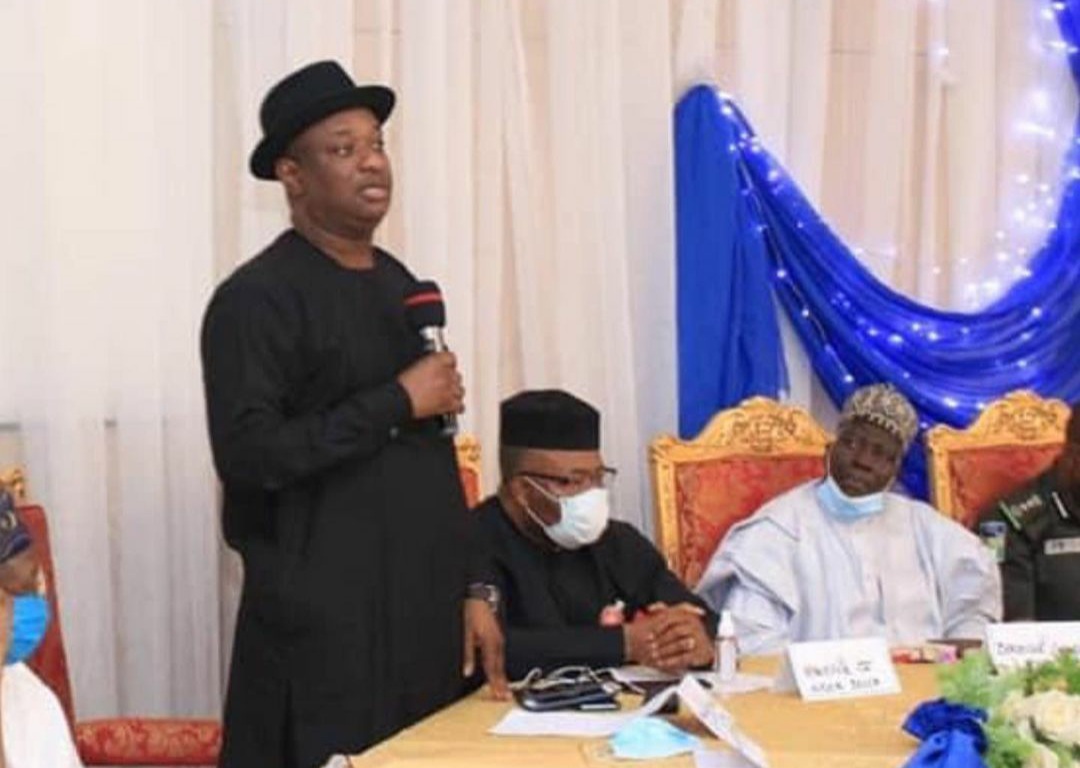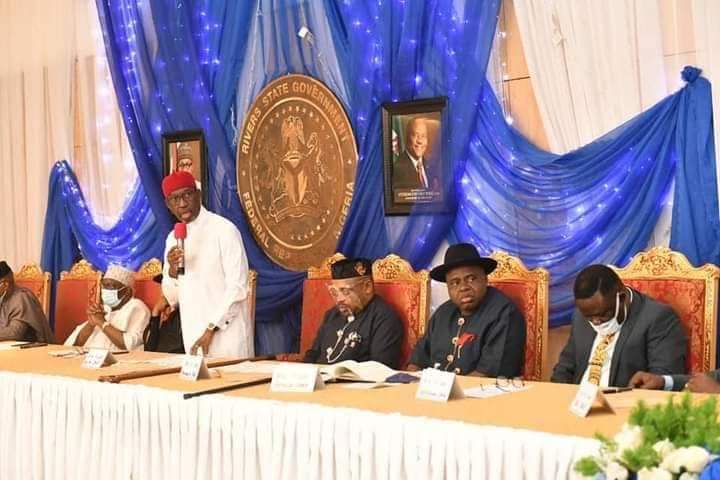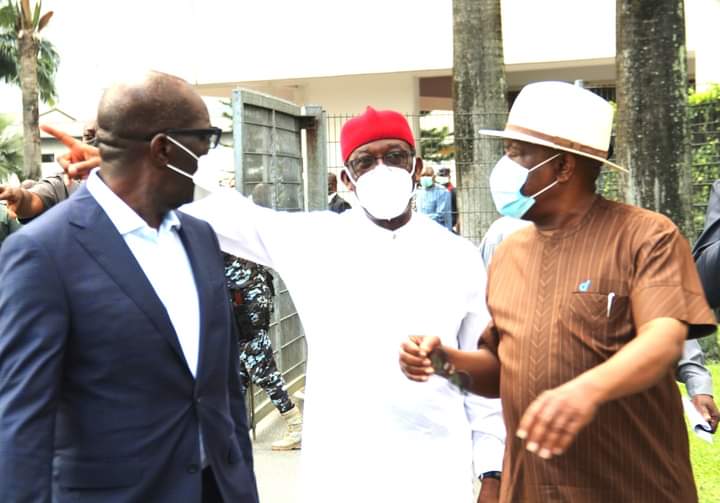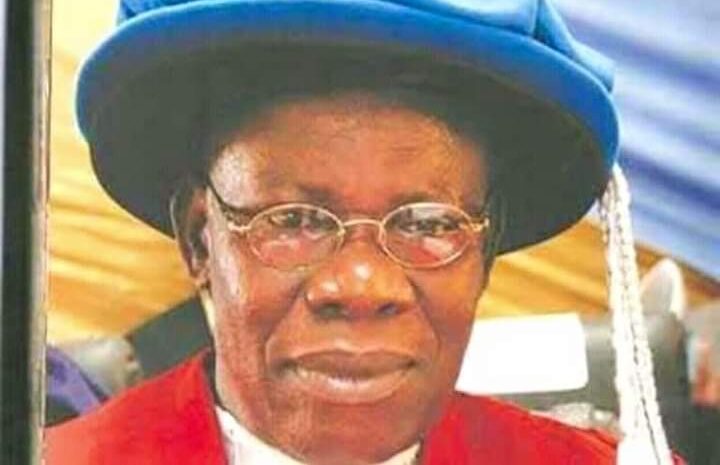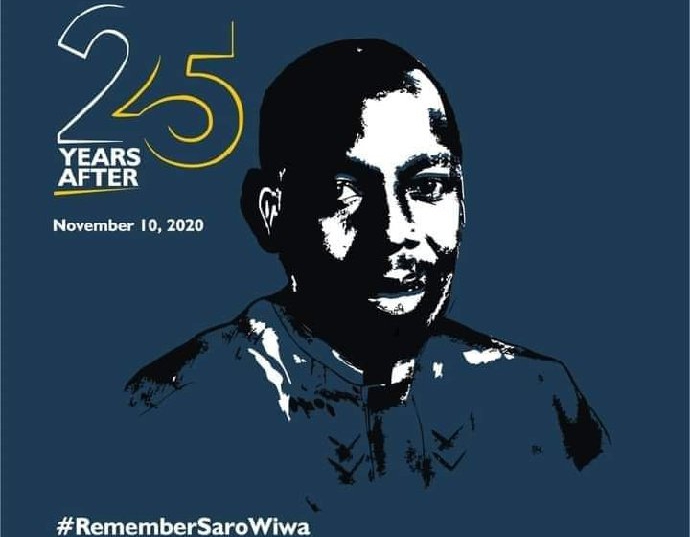…demand increase in company contribution to 5%
…say proposed law fails to address fate of environmentally ravaged, gas flare-impacted communities
Stakeholders in host communities of the Niger Delta Region have demanded ownership and control of the host communities trust funds proposed in the Petroleum Industry Bill (PIB) for the development of oil-bearing areas.
The stakeholders also demanded an increment in the contribution of 2.5percent of the Operating Expenditure (OPEX) of companies to 5percent even though they expressed concerns that the proposed funding is subject to manipulation and discretion by the entities.
The host communities however noted that the PIB failed to address the fate of impacted communities, especially those that suffer the consequences of gas flares and other environmental damages and demanded that this lacuna be provided for in the passage of the bill.
These were some of the highlights of a communiqué issued at the end of a Host Community (HostCom) Colloquium organized by OrderPaper Advocacy Initiative in Owerri, the Imo State capital during the week.
The communiqué, which had a total of 10 resolutions, was endorsed on behalf of participants drawn from oil bearing areas by the Pan Niger Delta Forum (PANDEF), Federation of Ethnic Nationalities of Niger Delta (FENND), and Stakeholder Democracy Network (SDN), among a dozen other group representatives of host communities.
While stating that the PIB “should be designed as a tool for resolving development challenges rather than as palliatives to host communities,” the stakeholders said the PIB “must clearly define what constitutes “host” and “impacted” communities, rather than leave that to the discretion of the companies.”
On the question of ownership, the stakeholders said the Bill “should make it compulsory for members of the Board of Trustees of the Trust to come from host communities and give communities a stronger role in the selection process, financial management and administrative procedures of operating the Trusts.”
They also said “Needs assessment, monitoring and evaluation for projects and programmes should be jointly conducted by both the communities and companies,” and that the PIB “should clearly set out timelines for implementation of projects and penalties for defaulting companies.”
They further said the PIB should “adopt clearly defined incentive-based measures for protection of oil and gas assets rather than current punitive measures that leave wide room for abuse,” and that “the contribution of companies to the Trust Fund should be increased from 2.5% to 5% of OPEX.”
On the legislative process which has seen the PIB gone through second reading in the Senate and awaiting consideration in the House of Representatives, they said “the National Assembly should consult widely with host communities in the current process of passing the PIB to deepen ownership of the resulting legislation. This would include visits to host communities by the Committee members and holding some of the public hearings on the Bill in the oil-producing Niger delta region.”
They further demanded that “members of the National Assembly from the Niger delta region have a responsibility to make granular consultations with their constituents and record their positions accordingly during debate and voting on the Bill.”
In terms of inclusiveness, the stakeholders said the “Bill should recognize gender dimensions in the development and constitution of host communities structures in line with the 2019 Extractive Industries Transparency Initiative (EITI) Standard.”
Recall that the Colloquium was declared open by the Deputy President of the Senate, Sen. Ovie Omo-Agege, who in his opening remarks, admonished that Nigeria must hurry to make the best use of its hydrocarbon resources now because in a few years’ time, the world would move away from fossil fuel to emerging alternatives.
Participants were treated to expert presentations and a panel discussion before a robust interactive session led to the adoption of the 10-point communiqué.
See full communiqué below:
COMMUNIQUE ISSUED AT THE HOST COMMUNITIES COLLOQUIUM ON THE PETROLEUM INDUSTRY BILL (PIB) HELD AT THE PROTEA HOTEL OWERRI IMO STATE ON NOVEMBER 17 2020 ORGANISED BY ORDERPAPER ADVOCACY INITIATIVE
PREAMBLE
OrderPaper Advocacy Initiative organized the Host Community (HostCom) Colloquium to deliberate on the relevant sections of the Petroleum Industry Bill (PIB) and draw up common positions for oil bearing communities in the Niger Delta region. The Colloquium had in attendance Oil Host Communities’ representatives, members of the National Assembly, Civil Society Organisations (CSOs), and the Media.
A welcome remark was made by Oke Epia, Executive Director, OrderPaper Advocacy Initiative, in which he explained the rationale behind the Colloquium and encouraged participants to deploy the learning garnered from expert presentations to interrogate the bill and offer submissions that could influence consideration of the draft law at the National Assembly.
The Colloquium was thereafter declared open by the Deputy President of the Senate, Sen. Ovie Omo-Agege, who in his opening remarks, admonished that Nigeria must hurry to make the best use of its hydrocarbon resources now because in a few years time, the world would move away from fossil fuel to emerging alternatives. Noting that the Bill makes Host Communities’ development one of its cardinal objectives, he averred that it has potentials to unlock huge potentials of the petroleum industry and urged participants to take advantage of the deliberations to make inputs into the law-making process.
In his remarks, the Deputy Chairman, House of Representatives Committee on Niger Delta, Rep. Henry Nwawuba, said the PIB is at the top of the agenda of the House. He assured of a speedy passage after a thorough consideration by parliament; and expressed expectations that the outcome of the Colloquium would be promptly forwarded to the lawmakers as inputs from host communities.
Three expert presentations were made at the colloquium. The first was by Dr. Otive Igbuzor, Founding Executive Director, Centre LSD, titled: ‘The Host Communities Development Challenge: What’s Broken that Needs to be Fixed?’ He situated the theoretical framework of development challenges facing host communities around the political economy of oil and the resource curse paradox. Dr. Igbuzor listed government responses over the decades and offered suggestions on way out of the persistent problems plaguing host communities of the Niger delta region.
The second presentation was by Engr. Joe Nwakwue, Lead Partner at Zera Advisory and Consulting, who reviewed the Host Community Provisions in PIB 2020 and Beneficiation Best Practices. He drilled down on how host community issues have been regarded and presented in the Bill while calling attention to and laying emphasis on the dichotomy between host and impacted communities on one hand.
The third presentation was by Prof. Wunmi Iledare, globally acclaimed petroleum industry expert, who spoke on ‘The Host Communities Trust Fund: Understanding the Details.’ He dwelt on the nuances of the trust fund especially the Operating Expenditure (OPEX) of companies while drawing parallels with the Royalty model of beneficiation, among others.
The presentations were followed and sometimes interjected with questions and comments which helped to provide needed clarity and enriched deliveries by the resource persons.
The Colloquium proceeded with a panel session which had Dr. Charles Achodo, Consultant and Advisor at the Ministry of Niger Delta Affairs; Ms Faith Nwadishi, Executive Director of Women in Extractives; Chief Douyi Douglas-Naingba, representative of the Pan Niger Delta Forum (PANDEF); and Rep. Henry Nwawuba; as panelists. They added varying perspectives to the discourse in their various contributions after which the over four hours Colloquium came to a close with a Vote of Thanks by Mr. Oke Epia.
Observations:
In the course of the Colloquium, participants made the following observations:
· Oil and gas host communities are faced with persistent development challenges associated with the political economy of oil which over the years has resulted in a resource curse characterized by underdevelopment, poverty, neglect of industry and agriculture, conflict and crisis
· Up until now, government responses to these challenges (whether regulatory, military or project-based) have failed to address questions of human development, environmental remediation, equity and justice
· The PIB shies away from the fundamental ownership question which has lingered and agitated host communities for decades
· The PIB in its current form appears to be a palliative measure rather than a tool for solving real problems and supporting sustainable development in host communities
· The options of equity holding and royalty payments to host communities were identified for consideration as more appropriate beneficiation models
· The contribution of 2.5% of previous year’s Operating Expenditure (OPEX) of companies to the Host Communities Trust is subject to manipulations by companies
· In any case, the contribution of 2.5% of OPEX is insufficient to address the risks and consequences of petroleum exploration and exploitation
· The level of discretion accorded to companies in organizing the Trusts is of concern to host communities
· The Bill appears to be unclear as to the fate of impacted communities, especially those in upstream operations of the Niger delta region
· In spite of the above shortcomings, PIB 2020 is seen as a welcome development due to the inclusion of Host Community Beneficiation and should be thoroughly engaged by communities with the objective of making informed and cogent representations to the National Assembly
Resolutions:
· The PIB should be designed as a tool for resolving development challenges rather than as palliatives to host communities
· The Bill must clearly define what constitutes “host” and “impacted” communities, rather than leave that to the discretion of the companies
· The National Assembly should consult widely with host communities in the current process of passing the PIB to deepen ownership of the resulting legislation. This would include visits to host communities by the Committee members and holding some of the public hearings on the Bill in the oil-producing Niger delta region
· In line with the above resolution, members of the National Assembly from the Niger delta region have a responsibility to make granular consultations with their constituents and record their positions accordingly during debate and voting on the Bill
· The Bill should make it compulsory for members of the Board of Trustees of the Trust to come from host communities and give communities a stronger role in the selection process, financial management and administrative procedures of operating the Trusts
· Needs assessment, monitoring and evaluation for projects and programmes should be jointly conducted by both the communities and companies
· The PIB should clearly set out timelines for implementation of projects and penalties for defaulting companies
· The PIB should adopt clearly defined incentive-based measures for protection of oil and gas assets rather than current punitive measures that leave wide room for abuse
· The contribution of companies to the Trust Fund should be increased from 2.5% to 5% of OPEX
· The Bill should recognize gender dimensions in the development and constitution of host communities structures in line with the 2019 Extractive Industries Transparency Initiative (EITI) Standard
Conclusion
Participants unanimously agreed that the resolutions should be forwarded to National Assembly leadership and Committees seized with the responsibility of processing the PIB. They expressed appreciation to OrderPaper Advocacy Initiative for organizing the Colloquium and to the Facility for Oil Sector Transformation (FOSTER) for providing support.
Endorsed By:
1. Pan Niger Delta Forum (PANDEF)
2. Stakeholder Democracy Network (SDN)
3. Federation of Ethnic Nationalities of Niger Delta (FENND)
4. Eruemukovwhoarien Host Community, Ughelli North LGA, Delta State
5. Diebu Community, Southern Ijaw LGA, Bayelsa State
6. Akpoti Badinugian, Youth Leader Ogbia LGA, Bayelsa State
7. Comrade Oloko Ibiba Gbobo, President-General, Idama/Ekulama Youth Organization Worldwide – Idama/Ekulama Kingdom & Satellite Communities, Akuku-Toru, Rivers State
8. Youth leader of Kolokuma/Opokuma LGA, Bayelsa State
9. Comrade Afam Ogbolu, Youth Wing of Ndokwa Neku Union, Ndokwa Ethnic Nationality, Delta State
10. Joint Association of People Living With Disabilities (JONAPWD), Akwa Ibom State
